It should never have come to this. But justice was finally served. Owen Farrell, the repeat high and dangerous tackle offender, was banned for four matches on appeal on Tuesday.
The England captain received a six-match ban, reduced to four on mitigation because of “the player’s acceptance of foul play, clear demonstration of remorse and his good character”. It was odd considering this is now his fourth ban for similar offences.
Farrell will miss England’s opening two games of Rugby World Cup 2023 against Argentina and Japan, as well as this weekend’s warm-up against Fiji. He missed last weekend’s 29-10 defeat against Ireland, which served as the first of his four-match suspension.
The hearing panel on Tuesday said the committee that initially overturned the red card, was “manifestly wrong” in its verdict as they did not consider that Farrell had not attempted to wrap his arms in the tackle, and therefore it was always illegal.
No mitigating circumstances could therefore be applied.
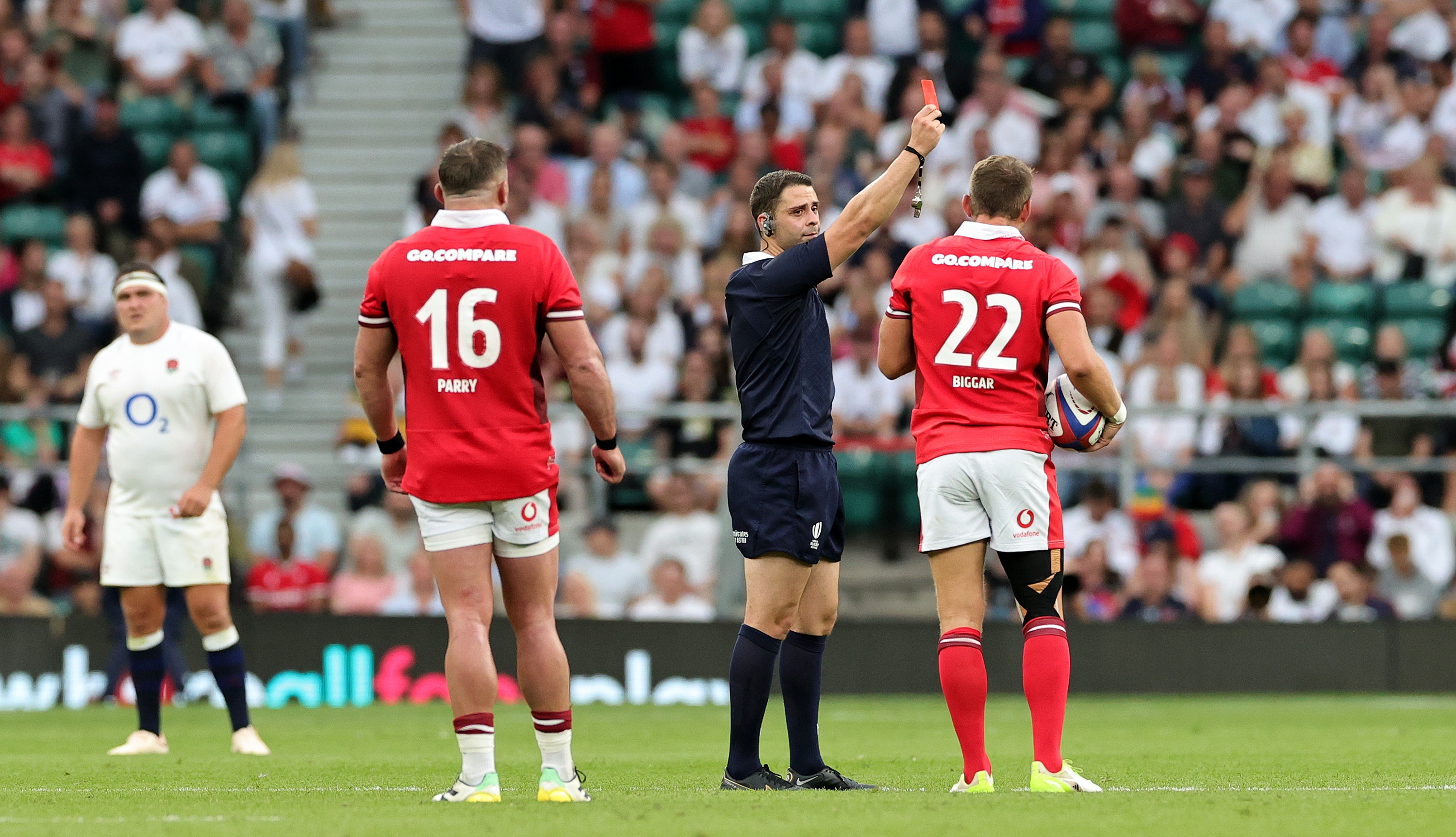 Nika Amashukeli, the referee, shows Owen Farrell, the England captain, a red card as he sits in the sin bin during the Summer International match between England and Wales at Twickenham Stadium on 12 August 2023 in London, England. (Photo: David Rogers / Getty Images)
Nika Amashukeli, the referee, shows Owen Farrell, the England captain, a red card as he sits in the sin bin during the Summer International match between England and Wales at Twickenham Stadium on 12 August 2023 in London, England. (Photo: David Rogers / Getty Images)
Integrity of the ‘bunker’ at stake
While the sanction is still lenient, considering Farrell’s track record, at least World Rugby was able to see some punishment meted out on appeal.
Farrell was red-carded for a dangerous tackle on Wales flank Taine Basham at Twickenham on 19 August. The Welsh player failed a head-injury assessment and could not continue in the match, which England won 19-17.
Farrell was initially yellow-carded by Georgian referee Nika Amashukeli in the 63rd minute, but the foul play review officer (FPRO), in what is called the “bunker”, upgraded the sanction to a red.
Farrell was subsequently charged with dangerous tackling, which carries a six-week, mid-range sanction for any hit that makes contact with a player’s head. Farrell has previously served three suspensions related to dangerous tackling.
The red card was rescinded at a disciplinary hearing a few days later and lowered to yellow, meaning Farrell was free to play.
But in an unusual step, World Rugby, the game’s governing body, appealed against the decision to rescind the red card, which was made by an all-Australian committee.
Downgrading the red card met with massive disbelief and posed some uncomfortable and precedent-setting consequences for the sport if unchallenged.
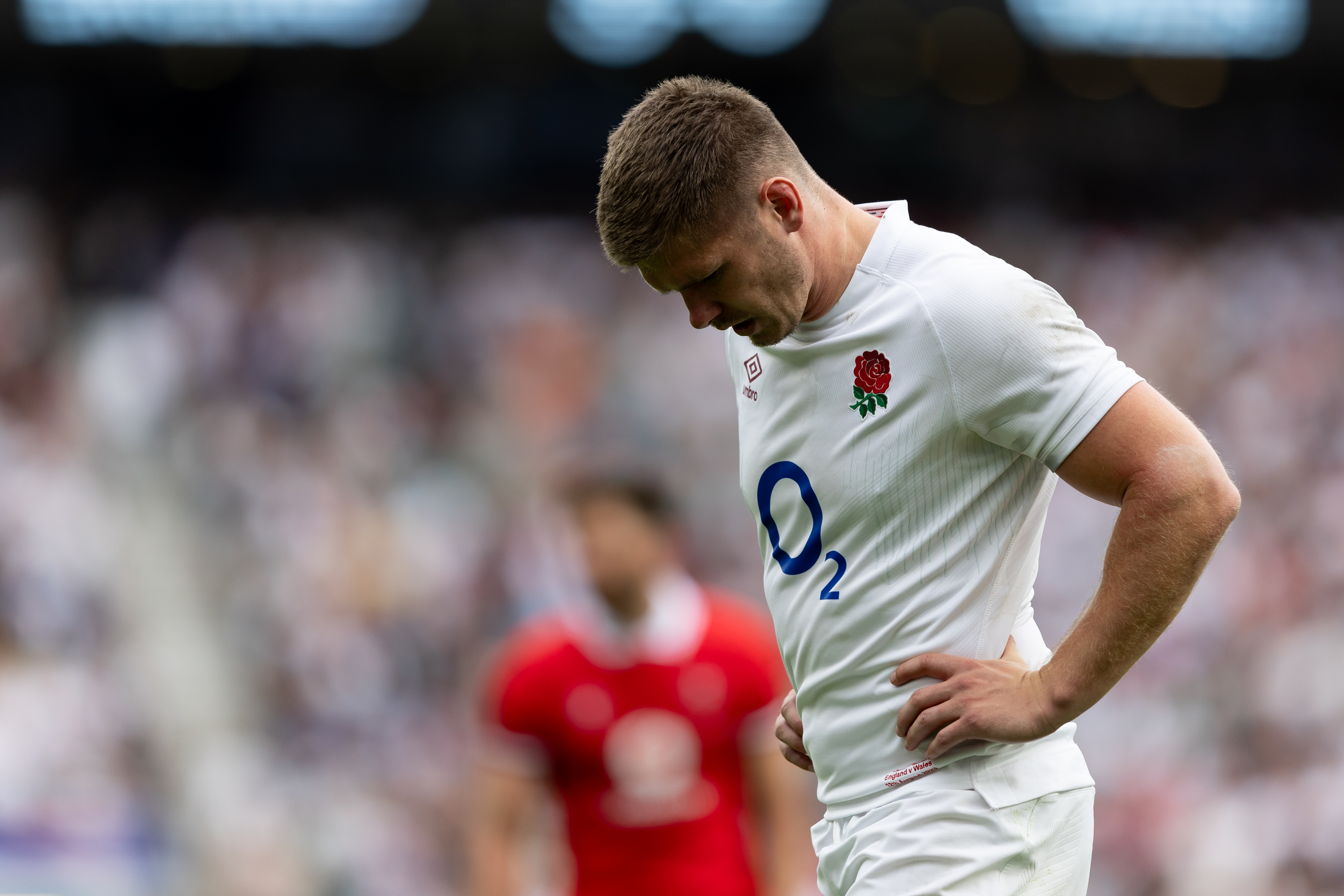 England captain Owen Farrell received a red card for a high tackle in England's match against Wales. He was expected to receive a ban, but the red card was initially reduced to a yellow by an independent panel - a decision World Rugby appealed. (Photo: Gaspafotos / MB Media / Getty Images)
England captain Owen Farrell received a red card for a high tackle in England's match against Wales. He was expected to receive a ban, but the red card was initially reduced to a yellow by an independent panel - a decision World Rugby appealed. (Photo: Gaspafotos / MB Media / Getty Images)
Considering “the bunker” and the FPRO will be used at the upcoming Rugby World Cup in France, it was essential that its integrity was supported through the appeal by World Rugby.
The wording by the disciplinary committee that rescinded the red card severely undermined the entire FPRO process.
“Unlike the Foul Play Review Officer, the Committee had the luxury of time to deliberate and consider, in private, the incident and the proper application of the head contact process,” a statement after Farrell’s initial hearing stated.
“The Committee believes this is in contrast to the Foul Play Review Officer, who was required to make his decision in a matter of minutes without the benefit of all the additional material, including hearing from the player and his legal representative.”
The FPRO is in a separate location, free of influence from the crowd and broadcasters, with eight minutes to assess a yellow card and decide whether it needs to be upgraded to red.
That statement suggests that the FPRO needs to consult legal counsel in-game to decide on an upgrade to a red card. This is ludicrous.
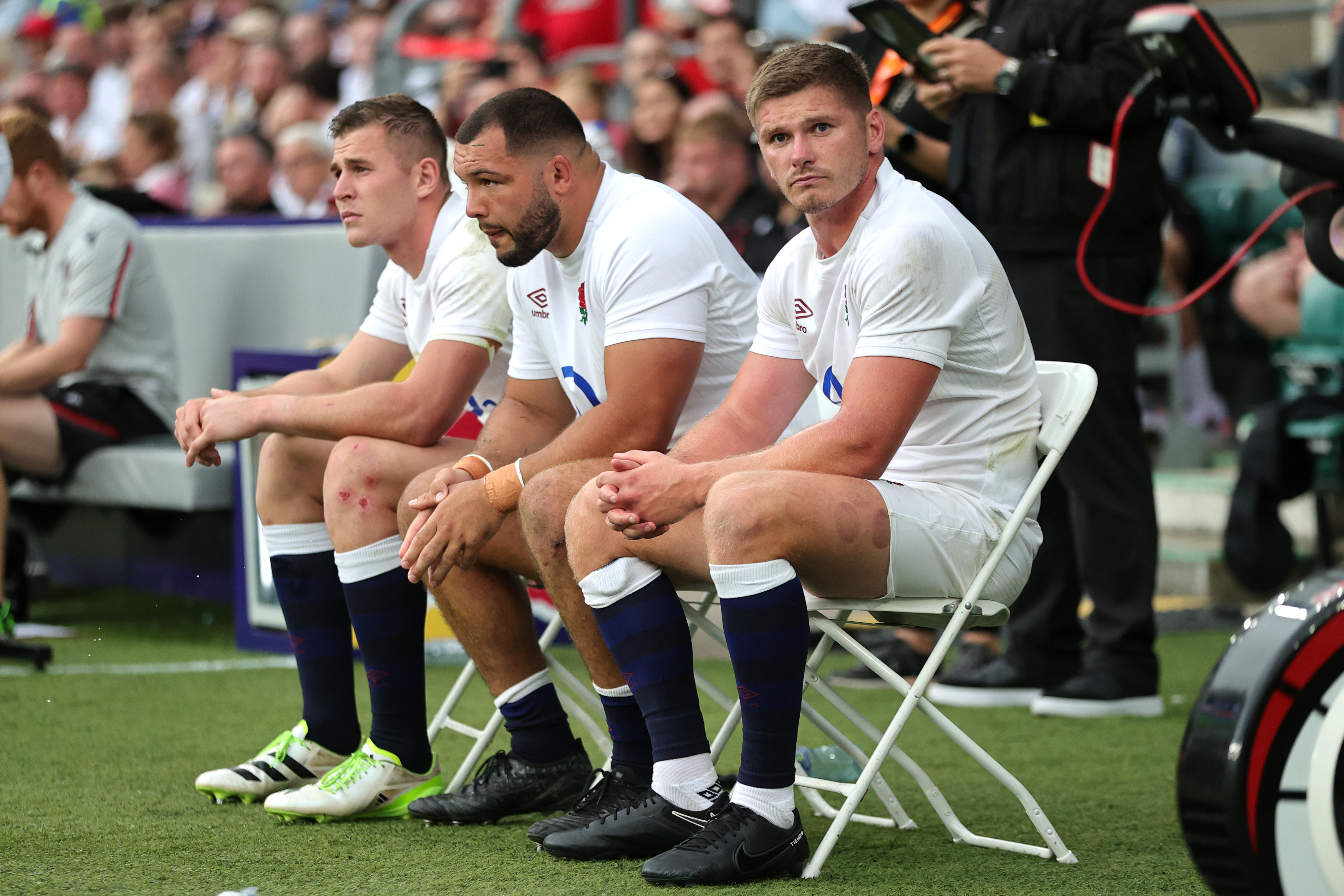 From left: Freddie Steward, Ellis Genge and Owen Farrell of England look on as they sit in the sin bin after receiving yellow cards during the Summer International match between England and Wales at Twickenham Stadium, London, on 12 August 2023. (Photo: David Rogers / Getty Images)
From left: Freddie Steward, Ellis Genge and Owen Farrell of England look on as they sit in the sin bin after receiving yellow cards during the Summer International match between England and Wales at Twickenham Stadium, London, on 12 August 2023. (Photo: David Rogers / Getty Images)
Compelled to act
World Rugby was compelled to act. But overturning a ruling in which “mitigation” was given as the reason for downgrading the red card placed a high legal burden on World Rugby.
They were successful by approaching the matter through a side door.
“The Appeal Committee met on Tuesday 22nd August and unanimously determined that in the original hearing, the Disciplinary Committee should have considered the attempt of the player to wrap his opponent in the tackle,” a statement from England Rugby said.
“This point did not feature in the original decision. The failure to attempt to wrap was judged to be an important element of the FPRO report and had led to an upgrading of the referee’s yellow card to a red card during the match.
“As this element did not feature in the original decision, the Appeal Committee decided it was in the interests of justice to hear the case afresh on that key point alone, which included hearing from the player.
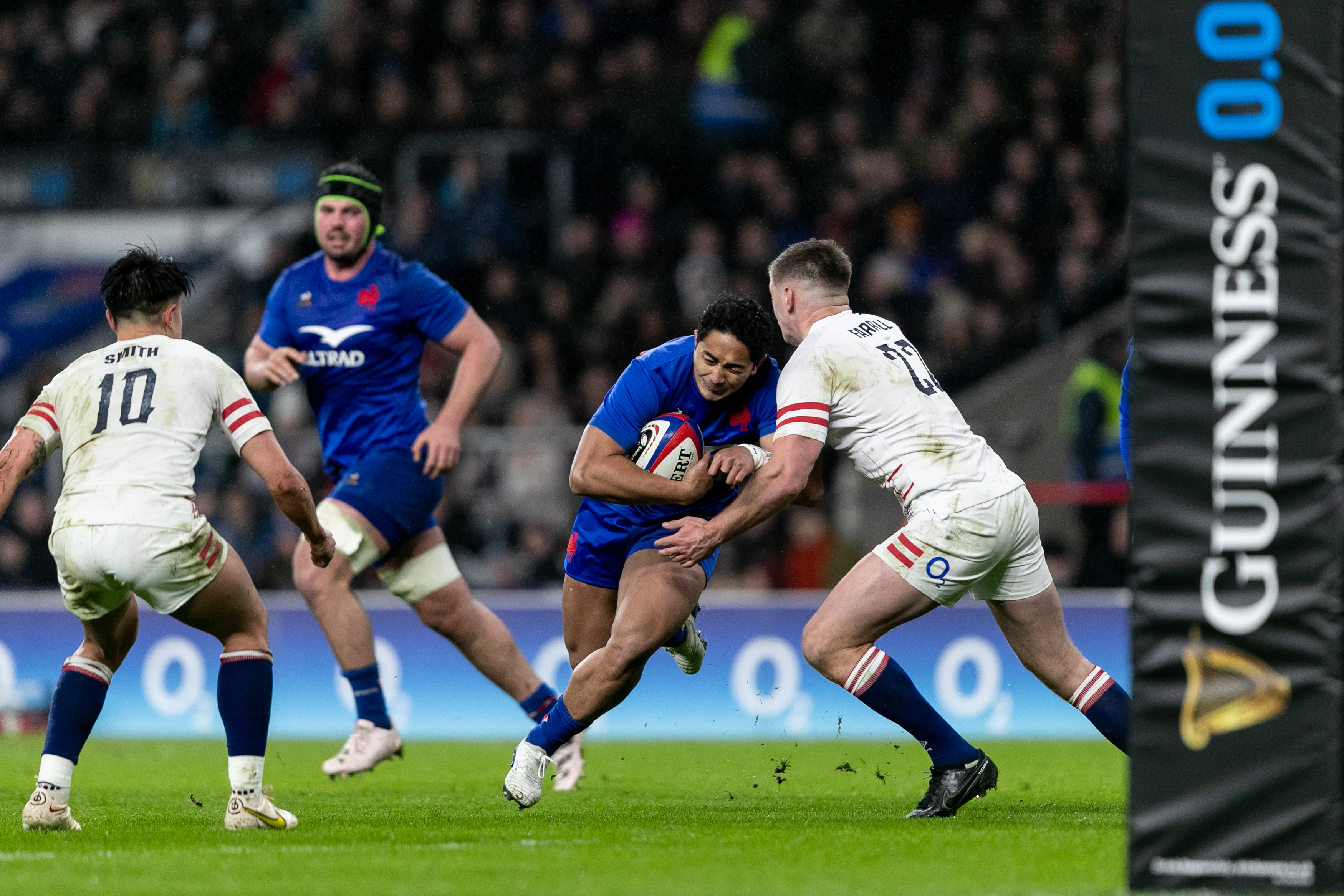 This tackle by England's Owen Farrell on France's Yoram Moefana would be deemed too high. (Photo: Gaspafotos / MB Media / Getty Images)
This tackle by England's Owen Farrell on France's Yoram Moefana would be deemed too high. (Photo: Gaspafotos / MB Media / Getty Images)
“Following the review by the Appeal Committee of this key element, it was determined that the FPRO was correct in his decision leading to the red card. The Appeal Committee subsequently determined that the tackle was ‘always illegal’.
“When applying the terms of World Rugby’s Head Contact Process, no mitigation can be applied to a tackle that is ‘always illegal’. The Appeal Committee therefore considered that the Disciplinary Committee’s decision to downgrade the red card to a yellow card had been manifestly wrong, which led to the Disciplinary Committee’s decision being overturned, the appeal brought by World Rugby being allowed, and the red card upheld.
“In considering sanction, the Committee applied World Rugby’s mandatory minimum mid-range entry point for foul play resulting in contact with the head (six matches).
“Taking all considerations into account, including the player’s acceptance of foul play, clear demonstration of remorse and his good character, the Committee agreed to a four-match suspension.
“The Appeal Committee accepted submissions on behalf of the player that the Ireland v England match on 19 August 2023, for which the player was voluntarily stood down, would be included as part of the sanction.” DM




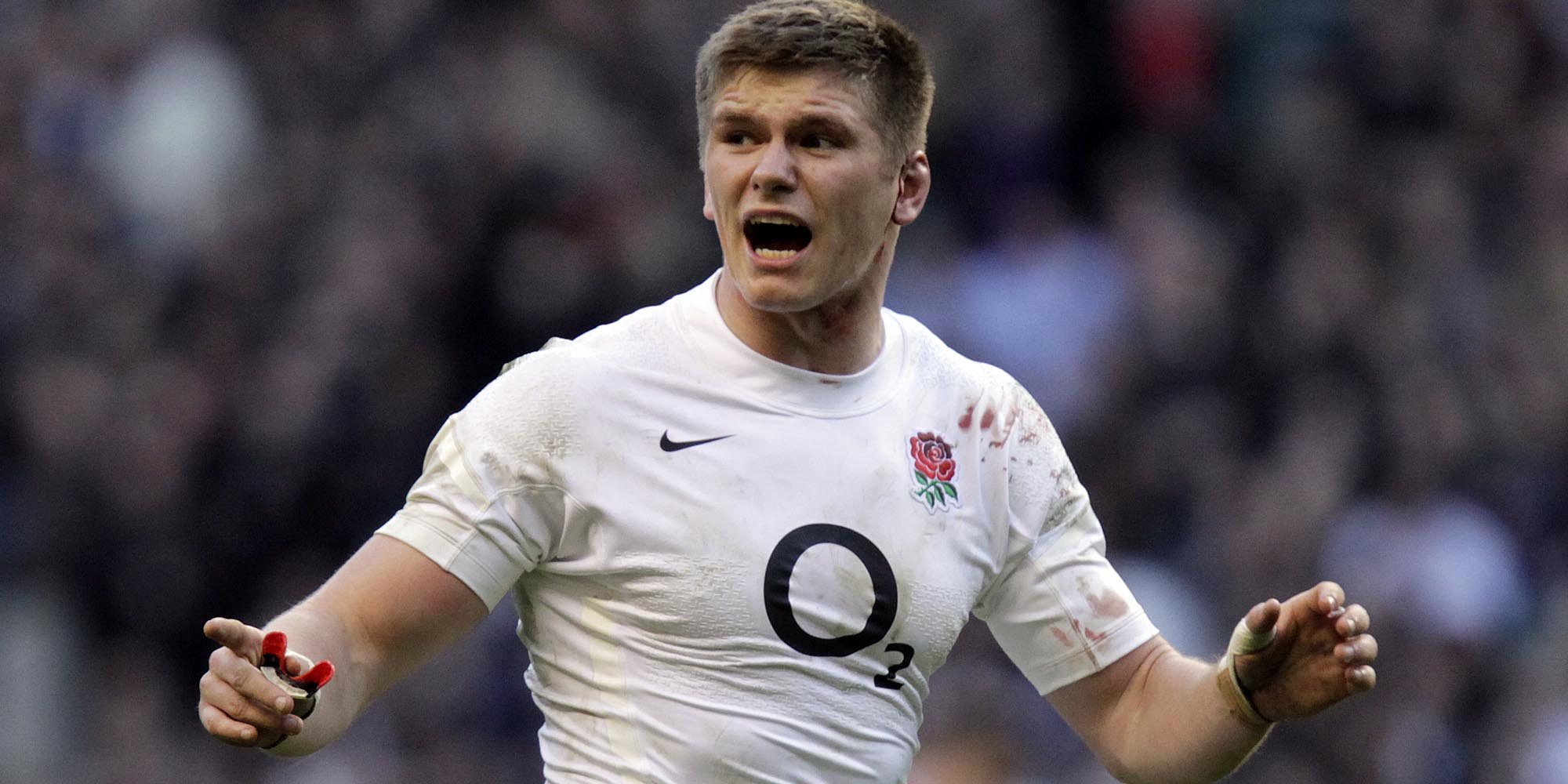 This tackle by England's Owen Farrell on France's Yoram Moefana would be deemed too high. (Photo: Gaspafotos/MB Media/Getty Images)
This tackle by England's Owen Farrell on France's Yoram Moefana would be deemed too high. (Photo: Gaspafotos/MB Media/Getty Images) 